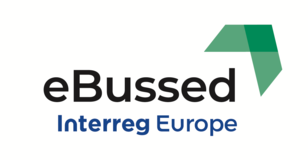eBussed project kickoff took place in Turku, Finland in November 2019 gathering project group and stakeholders to hear key speakers’ topics, present the current situation in project regions and take part to the baseline workshop.
The key speaker Mikko Pihlatie from VTT Technical Research Centre Of Finland Ltd. kept a captivating presentation about the status and perspectives on electric buses on global, European and regional Helsinki level. The global amount of e-buses has significantly increased. The current amount is reaching about 460 000 vehicles with lots of variety in charging regimes and battery types. When it comes to number of e-buses in use, China is considerably ahead of all other countries. In Helsinki, the current trend seems to be to procure the charging services instead of owning them, having medium-sized batteries and charging mainly in terminals.
Pros and cons
Markku Ikonen, a Senior Lecturer from Turku University of Applied Sciences challenged the audience by asking whether e-buses are a guaranteed climate-friendly solution. With their several positive aspects, such as electric powertrains being quiet and can easily be placed anywhere in the vehicle, they have numerous disadvantages, for example, difficulty to store enough energy and slow charging. The climate impact depends on electricity generation method, as coal-based electricity barely wins diesel, whereas hydropower is a superior solution. After all, electric powertrain has many advantages over conventional solutions.
Before taking a tour on a local e-bus, Topias Pihlava from Turku Region Traffic Föli described the current situation and the plans in municipality of Turku, Finland. Both gave new insight on how things could be arranged in other regions, though problems differ from area to area. Would you have thought that heating and cooling down a bus require the same amount of energy?
Why don’t we have more e-busses?
The e-bus status quo was brainstormed in the Baseline workshop. During the session, experts from all participating regions pointed out factors supporting and slowing down e-bus deployment. Reliability, silo mentality, lack of standardization and procurement expertise were among the identified aspects that need to be solved before being capable of running a smooth e-bus transportation.











